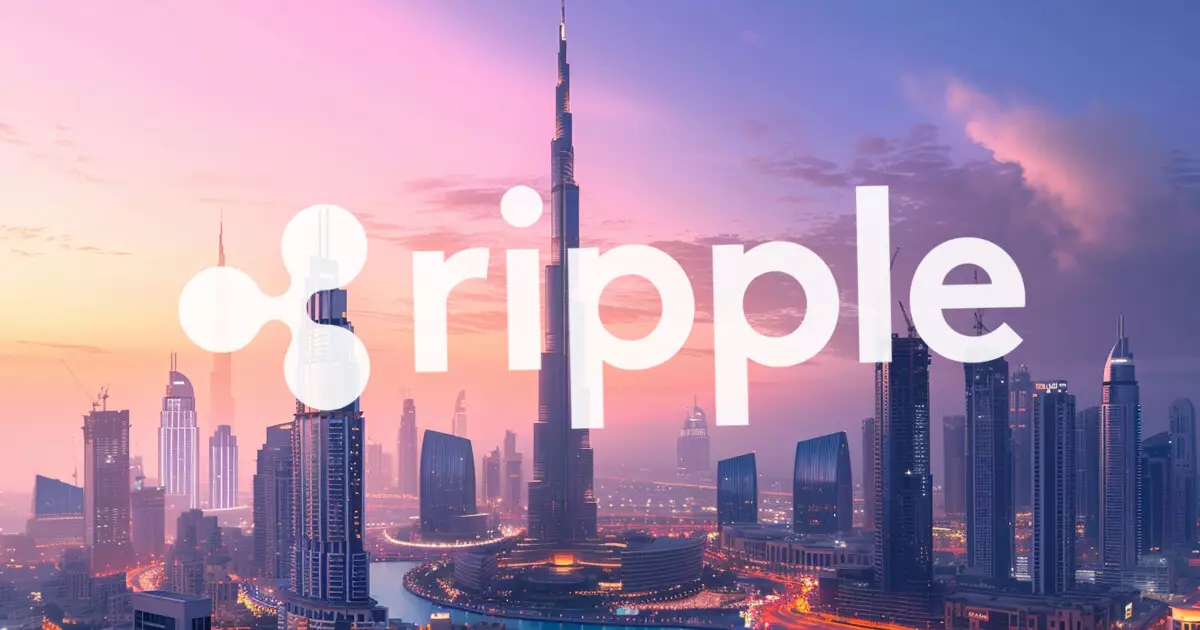The recent in-principle approval granted to Ripple by the Dubai Financial Services Authority (DFSA) represents a pivotal moment for the company and the broader blockchain ecosystem. This development, announced on October 1, underscores Ripple’s ambition to innovate within the UAE’s financial services landscape. By acquiring the first blockchain-based payment service license from the DFSA, Ripple not only solidifies its position as a regulated entity but also reaffirms its commitment to compliance while pursuing groundbreaking advancements in digital finance.
Ripple’s new license is an essential addition to its impressive repertoire, which already includes over 55 licenses worldwide. These credentials come from various regulatory bodies, including the Monetary Authority of Singapore (MAS) and the New York Department of Financial Services (NYDFS). This continued expansion into global markets, particularly with DFSA’s backing, enables Ripple to establish a more robust presence in the Dubai International Financial Centre (DIFC). With this approval, Ripple intends to deploy its state-of-the-art digital asset infrastructure across the UAE, which could revolutionize cross-border payment processes in the region.
With the DFSA license in hand, Ripple positions itself to launch its Ripple Payments Direct (RPD) solution. This innovative product aims to facilitate quicker and more economical cross-border transactions, an area significantly hampered by traditional financial systems. Ripple’s strategy involves integrating stringent regulatory compliance with sustained investments in essential infrastructure, focusing on liquidity management and seamless conversion between fiat and digital assets. Such an approach could lead to more efficient transactions, inherently appealing to businesses operating in a globally integrated economy.
According to recent insights from investment bank Houlihan Lokey, Ripple’s operational growth could position it as a formidable competitor to SWIFT, historically the dominant entity in the cross-border payment arena. While SWIFT has held sway for many years, it increasingly faces competition from diverse players, including conventional card networks and emerging FinTech solutions from companies like Airwallex, Nium, and Wise. Ripple, leveraging blockchain technology, offers significant advantages that could disrupt the traditional payment landscape and provide users with a more agile and transparent financial solution.
Firmly placing its stakes in the Middle East, Ripple’s establishment of its regional headquarters in Dubai marks a strategic endeavor to capitalize on the burgeoning crypto market. The UAE’s regulatory clarity forms a critical foundation for Ripple’s growth, enabling the firm to navigate a complex regulatory environment where innovative blockchain solutions can thrive. Access to adjacent emerging markets in Africa and South Asia further enhances Ripple’s potential, revealing a vision that extends far beyond the borders of the UAE, positioning the company at the forefront of global financial innovations aligned with regional advancements.
Ripple’s recent DFSA approval not only highlights the company’s commitment to regulatory compliance but also sets the stage for a transformative impact on cross-border payments, challenging established systems while fostering innovation in financial services across the Middle East and beyond.














Leave a Reply